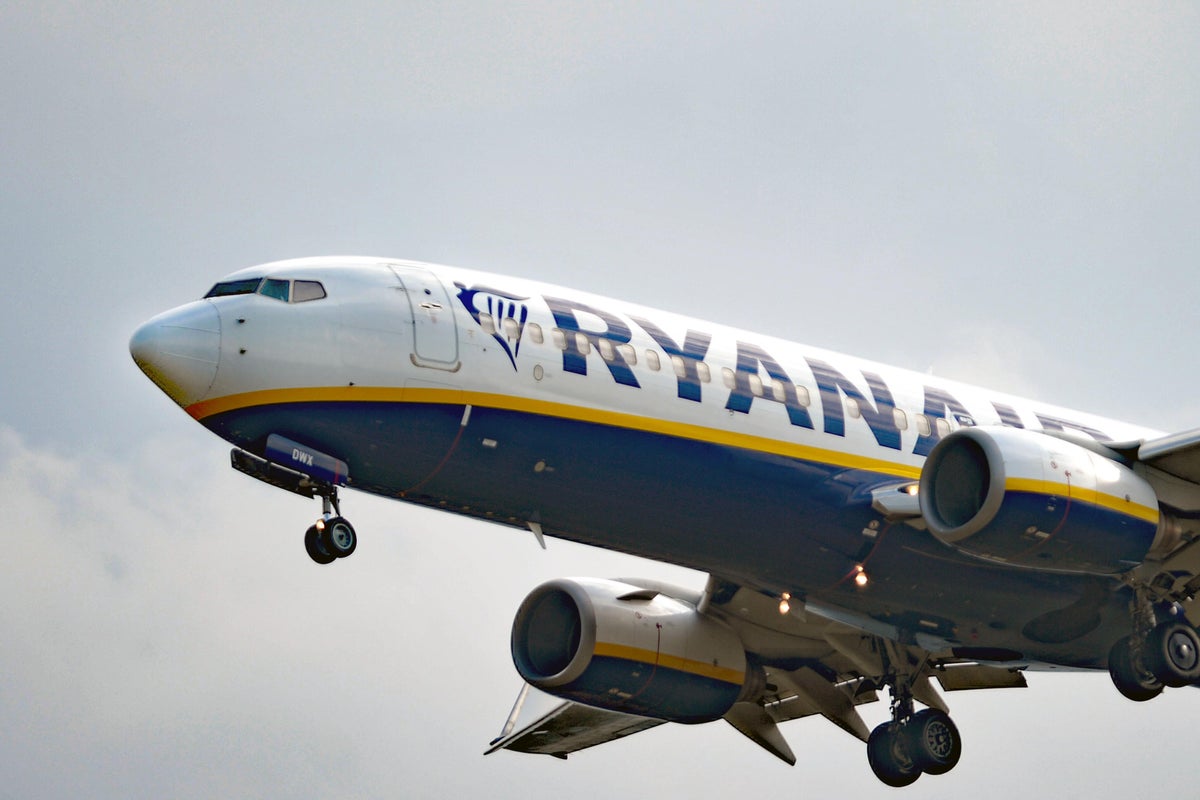
Ryanair has announced it is cutting its winter 2023/2024 schedule at Dublin Airport in response to increased passenger charges.
The airline cancelled 17 routes and moved 19 aircraft to alternative European airports which it says incentivise airlines with quieter, lower emission aircraft.
Ryanair chief executive Eddie Wilson said this would be a roughly 10% cut on passenger numbers out of Dublin Airport compared to last year.
In a statement, Ryanair said it made the decision due to Dublin Airport operator DAA’s “rising passenger charges of 45%, ongoing Capex mismanagement and their failure to deliver a meaningful environmental incentive scheme that rewards lower emission aircraft”.
It said: “DAA has a history of mismanagement at Dublin Airport, including understaffing summer security, wasting taxpayers’ money on ill-thought-out infrastructure projects and failing to support low-cost access and sustainable growth.”
The airline said the 19 aircraft are part of its “gamechanger enviro-friendly” fleet of Boeing 737 8200 aircraft, which it said reduce noise by 40% and CO2 emissions by 16% while carrying 4% more passengers per flight.
The company said DAA is increasing its “already excessive charges by a ludicrous 45%”.
Ryanair was critical of DAA’s three billion euro capital expenditure programme, saying it includes a “portfolio of unnecessary vanity projects” which the airline said would not benefit passengers.
It said: “A prime example of this is DAA’s 250 million euro cargo tunnel. This tunnel is superfluous and could easily be replaced with a tried and tested low-cost alternative like the crossing system at Cologne Airport – home of Europe’s Aviation Safety Agency.”
Ryanair said DAA should be planning to expand Dublin Airport’s terminals one and two for passenger and connectivity growth.
At a press conference in Dublin, Mr Wilson said: “It is regrettable that Ryanair is announcing 17 route cuts and the removal of 19 ‘Gamechanger’ enviro-friendly aircraft this winter at Dublin because there are no incentives at Dublin to grow traffic or reward investment in aircraft with lower C02 and noise emissions.
“Unlike most other EU airports, DAA is unfortunately focused on increasing passenger charges by 45% and wasting 250 million euro on a tunnel the same size as the Dublin Port tunnel that is not needed.
DAA are oblivious to what is happening at airports elsewhere in Europe and is intent on rating charges by 45%, with hugely damaging consequences for Ireland— Eddie Wilson, Ryanair chief executive
“DAA needs to build low-cost infrastructure to support passenger growth and connectivity but has failed to implement a growth incentive scheme or, indeed, lower charges that reward those airlines who invest in lower emission aircraft.
“The Irish Government implemented an innovative industry-leading traffic recovery support scheme post-Covid, with Ryanair responding with +117% recovery vs pre-Covid levels, ensuring Ireland’s recovery of connectivity and tourism.
“Unfortunately, all this good work is now going to unravel with DAA’s misguided policy of increasing charges by 45%. Dublin Airport isn’t Heathrow; Dublin competes for traffic with other European airports, and with less airline seat capacity returning post-Covid, airports must respond with incentives to attract that smaller pool of aircraft seat capacity.
“Sadly, DAA are oblivious to what is happening at airports elsewhere in Europe and is intent on rating charges by 45%, with hugely damaging consequences for Ireland.”
Pointing to comparatively low air traffic recovery in Germany following increased charges, Mr Wilson said: “It’s absolutely going to happen here because there’s no incentive for Ryanair to retain aircraft here.
“You will see, gradually, a reduction in capacity and there’s nobody else going to fill that gap.
“Dublin is uncompetitive, connectivity, airline investment and traffic goes down – bad for tourism.
“And what we want the DAA to do is at least freeze charges, put in incentives for airlines to actually grow, put in an environmental scheme – you could do this on a cost-neutral basis because what you can say is those who put in fuel-efficient, less noisy aircraft get lower charges and those that don’t make that investment pay higher charges.
“They need to stop wasting money on a tunnel and expand existing infrastructure because this is going to be bad for the country.”
He said the 19 aircraft would be moved to Luton and “across Europe” including airports in Spain and Italy.
Asked if passengers should expect prices to increase on routes with reductions, Mr Wilson said: “Where you have less of anything and you’ve got demand, well then prices will rise.
“You get into a sort of a death spiral with this, because if you’ve got a market where people have an expectation at a particular level and you contract that market, well then the price goes up – but it’s very easy to stop.”
Asked when he last spoke to the Irish Minister for Transport and Environment Eamon Ryan about the airline’s concerns, Mr Wilson said: I’ve written to him three times this year to tell him this is going to happen, never getting anything back.”
He said Mr Ryan had a “unique” opportunity to be a world leader on modulated charges at airports to make higher-polluting airlines pay more.
Mr Wilson said there would be no initial job losses within Ryanair due to the decision but added that the airline would have to “see what happens next summer”.
He said he was not currently hopeful that any of the additional Boeing 737 8200 aircraft due to be delivered to the airline would be put in Dublin.







